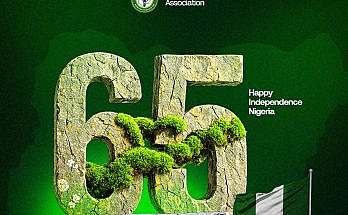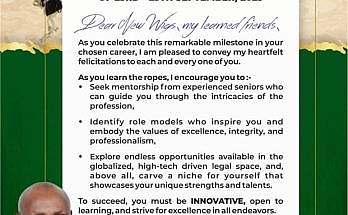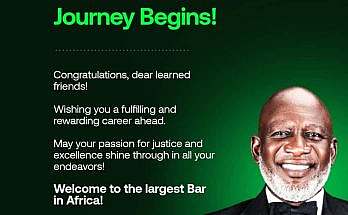The Nigerian Law Society held its 3rd Annual General Conference on the 23rd to 25th of July 2025 at the Federal Capital Territory, Abuja. The theme for this year’s event is Democracy in Nigeria: The journey so far.
DAY ONE.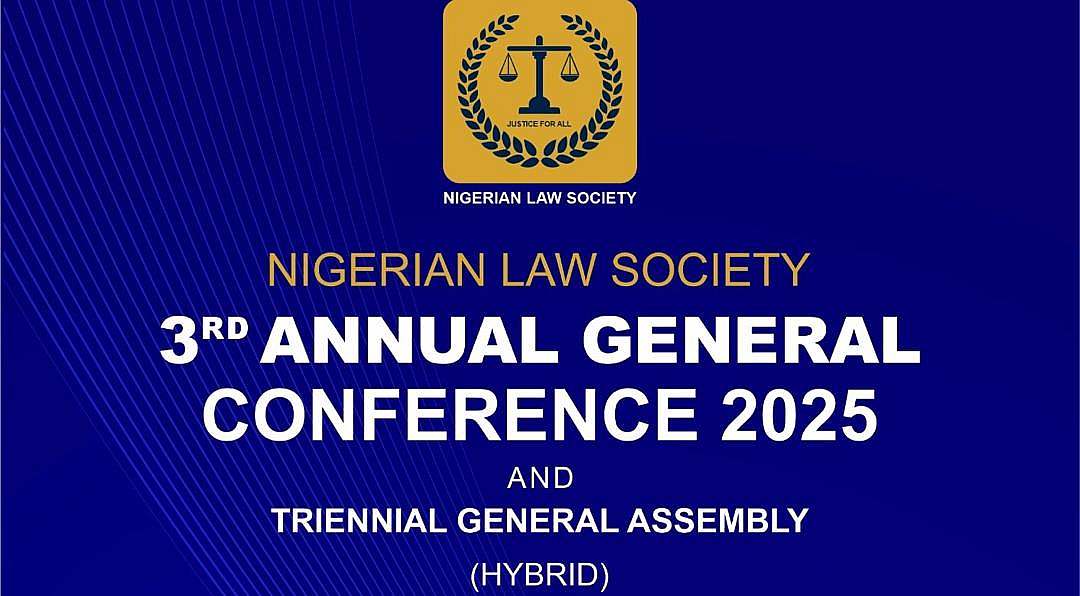 The Annual General Conference commenced with itsAnnual General meeting at which statutory reports were received. Following the report of the electoral committee, the election and inauguration of its new national officers was conducted. The following offices were filled by the following successful candidates:
The Annual General Conference commenced with itsAnnual General meeting at which statutory reports were received. Following the report of the electoral committee, the election and inauguration of its new national officers was conducted. The following offices were filled by the following successful candidates:
President of NLS: Chief Mela, Audu Nunghe, SAN Bencher
Ist Vice President: Alhaji Abdulquadir Sani. General Secretary: Mr. Olasupo Ojo.
Assistant Secretary: Mrs Alice Awonugba.
Publicity Secretary: Dr Onyinyechi Lilian Uche. Treasurer: Mrs Chioma Ferguson.
The event ended with a barbecue night hosted by Chief Joe-Kyari Gadzama, SAN.
DAY 2
OPENING SESSION
The opening ceremony of the conference was held at Top Rank Hotels, Area 11, Garki, Federal Capital Territory. The ceremony commenced with a welcome remark by the President of the Nigerian Law Society, Chief Mela Audu Nunghe, SAN. Goodwill speeches were delivered and sent in by the following persons: Mr Mohammed Bello Adoke SAN, Former Hon Attorney General of the Federation, Chief Bolaji Ayorinde SAN, Chairman, BOT, Nigerian aw Society, Chief Joe-Kyari Gadzama, SAN, founder of the Nigerian Law Society, Nigerian Bar Association (NBA), African Bar Association(AFBA), Pan African Lawyers Union (PALU), International Federation of Women Lawyers (FIDA), etc.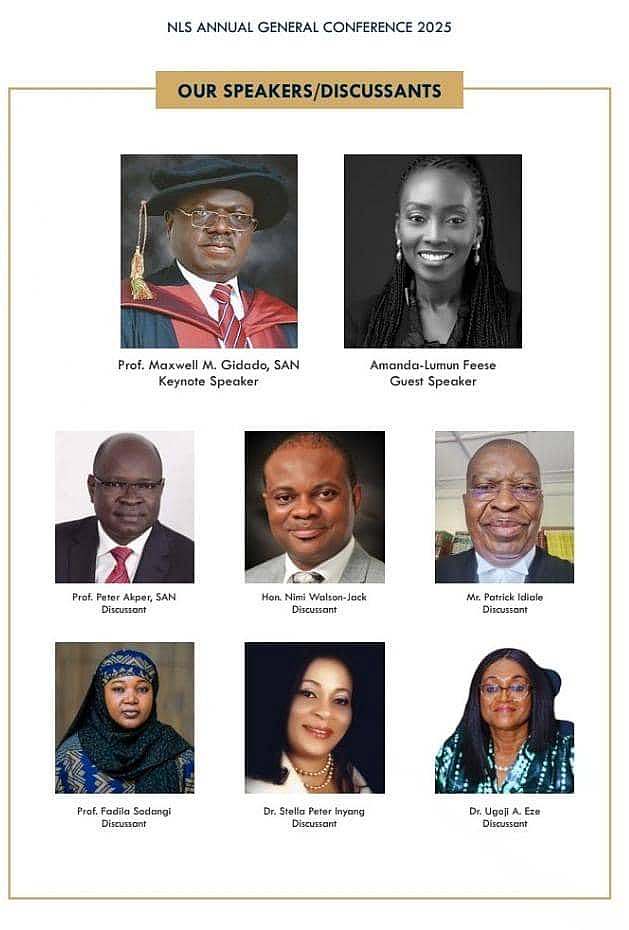 The session was chaired by Professor Esu Effiong. The guest speaker, the erudite scholar of high repute, Prof. Maxwell Gidado, SAN, OON, delivered his conference paper on the theme of the conference. The session had as its panellists Dr Stella Inyang, Mr Patrick Idale, and Associate Professor Fadila Sondangi.
The session was chaired by Professor Esu Effiong. The guest speaker, the erudite scholar of high repute, Prof. Maxwell Gidado, SAN, OON, delivered his conference paper on the theme of the conference. The session had as its panellists Dr Stella Inyang, Mr Patrick Idale, and Associate Professor Fadila Sondangi.
The keynote speaker, Prof Maxwell Gidado, SAN, OON, in his speech titled, “Democracy in Nigeria: The Journey so Far”, honoured the forbears of democracy in Nigeria, x-rayed the challenges facing the democratic governance, achievements made and the efforts being made to sustain it. The presentation outlines Nigeria’s democratic journey, starting with a foundational definition, examining its constitutional underpinnings, detailing its historical path, and highlighting persistent challenges alongside notable progress and future considerations. He defined Democracy to Indeed mean, “Government of the people, by the people, for the people”, and noted that the key principles of democracy are its ability to be formed by the people, represent the people, and work for their welfare.
He also highlighted the characteristics of Nigerian democracy to include open government, protection of human rights, periodic elections, separation of powers, freedom of the press, rule of law, and democratically elected local governments (affirmed by the Supreme Court on July 11, 2024, regarding LG autonomy).
He was of the opinion that even though theoretically, Nigeria is said to be practising federal democracy where power is divided between a central authority and constituent units – power is divided between the federal government and the 36 states as well as the Federal Capital Territory but the reality is that the Government at the Federal level is endowed with enormous powers by the Constitution of the Federal Republic of Nigeria 1999 (as amended) which made the Government at the centre to be too powerful and domineering.
He noted that the debate around true federalism highlights the need for greater autonomy, fiscal decentralisation, and more robust state-level decision-making, which necessitated calls for restructuring Nigeria, as some have argued that Nigeria is practising a pseudo federalism masquerading as democracy but operating a unitary system of government. He examined the issues of true federalism and revenue allocation and the need for states to have more control over the resources within their territories; Security and the need for state-level control over security agencies vis-à-vis the need to maintain national unity.
He identified ongoing challenges and preferred the following ways forward for Nigerian democracy
The conference adopted his submissions in toto.
PLENARY SESSION.
The plenary session was chaired by Chief Joe-Kyari Gadzama, SAN. The keynote speaker of the session was a seasoned industry expert in mining and extractive industry, facilitator, Industrial Policy Commission, Nigerian Economic Summit Group (NESG), Amanda-Lumun Feese, who delivered a well-researched paper on the topic “Resource governance in Nigeria’s mining sector: Issues and prospects for Nigeria”.
In her presentation, she noted that Nigeria’s mining sector contributes less than 1% to GDP (vs. 4% historically), primarily due to exclusive federal control despite global demand for minerals. Feese identified five systemic failures viz:
1) Conflicts arising from unclear federal-state roles in resource federalism.
2) Absence of an independent Mining Regulatory Commission (unlike other key sectors).
3) Misaligned exploration strategy failing to attract capital.
4) Lack of indigenous mining finance ecosystem leading to informality.
5) Weak linkages between mining and other industries (manufacturing, tech, etc.).
PROFFERED SOLUTIONS
In order to find solution to these identified issues, Feese proposed a mixed/cooperative mineral resource federalism model with delineated responsibilities between the Federal and State Governments, there is a need to amend the Constitution of the Federal Republic of Nigeria 1999 to move mining to the Concurrent Legislative List, define FG/state roles clearly, establish Federal & state mining regulatory commissions and strengthen institutional framework for state Mineral Resources and Environmental Management Committee (MIREMCO):
i) Sharing: Sharing responsibilities jointly between national/central and subnational authorities for specific resource governance functions;
ii) Empowering: Empowering local governments and indigenous groups with clearly defined roles in resource governance;
iii) Delegation: Delegates certain functions to the national/central government and others to subnational governments, depending on capacity and cost efficiency.
iv) Setting minimum standards: National/central government sets minimum national standards while allowing subnational institutions to adapt or enforce them locally.
a) Federal Government to develop national frameworks, significant contracts, set taxes and royalty rates, and conducts geological surveys;
b) The State Governments to grant Artisanal licensing, obtain community consent on minor minerals, and environmental and social monitoring. Increased derivation.
c) LGAs and communities participate in the mining licensing process
REFORM PATHWAY & OUTLOOK.
➢ Key Action: Amend the Constitution to move mining from the Exclusive to the Concurrent Legislative List.
➢ Further steps include establishing clear federal and state mining regulatory commissions and strengthening state-level institutions.
➢ Opportunities: The House’s 2024 constitutional amendment bill.
➢ Risks: Potential resistance from oil states and FG withholding fiscal powers.
CONCLUSION.
The presentation concluded by noting that the sector is currently fragmented and underperforming; therefore, adopting cooperative federalism through constitutional and regulatory amendments is crucial, as it will lead to increased global competitiveness, investments, economic growth, and job creation for Nigeria. All discussants agreed that ownership of the land where mineral resources are found should reside in the local communities/families, whilst the government can exercise some control and regulate the exploration.
The conference adopted all the submissions.
Day two of the conference ended with a dinner chaired by K. T. Turaki SAN, former Minister of Special Duties and Intergovernmental Affairs. Also in attendance was Chief Mamman Mike Usman SAN, Chairman, Arewa Consultative Forum (ACF), who delivered the post-dinner speech and awards being presented to some of the key stakeholders in recognition of their contribution to the growth of the association.
The following persons received the award: Chief Asijwaju A.S Awolomolo, SAN, Dr Tony Ojukwu, SAN, Chief Kunle Ogunba, SAN, K.T. Turaki, SAN, Dr Olisa Agbakogba, SAN, Mohammed A. Abubakar, SAN, Chief Bolaji Ayorinde, SAN, and Chief Joe-Kyari Gadzam, SAN.
DAY 3:
The third and last day of the conference commenced with the golf tournament at the Zuma Rock Golf Resort, with members of the Nigeria Law Society who are golfers kicking off the tournament. At the end of the tournament, an award was presented to Mr Ubong Esop Akpan as the winner of the first annual golf tournament by Chief Joe-Kyari Gadzama SAN, who is also the Captain of the golf club of the Nigerian Law Society and sponsor of the award. There was also a Speech from the Chairman of the Zuma Rock Golf Resort, Mr Moyad Alrachid and the President of the Nigerian Law Society, Chief Mela Audu Nunghe SAN. The session ended with the Chairman of the Golf resort promising to host the next Annual General Conference on the budget of the Nigerian Law Society.
©️Chief Mela, Audu Nunghe, SAN Bencher. President of the Nigerian Law Society.
©️Dr Onyinyechi Lilian Uche.
Publicity Secretary:

